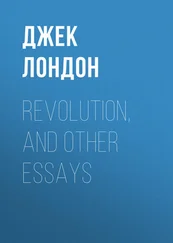Guy Thorne - I Believe and other essays
Здесь есть возможность читать онлайн «Guy Thorne - I Believe and other essays» — ознакомительный отрывок электронной книги совершенно бесплатно, а после прочтения отрывка купить полную версию. В некоторых случаях можно слушать аудио, скачать через торрент в формате fb2 и присутствует краткое содержание. Жанр: foreign_prose, на английском языке. Описание произведения, (предисловие) а так же отзывы посетителей доступны на портале библиотеки ЛибКат.
- Название:I Believe and other essays
- Автор:
- Жанр:
- Год:неизвестен
- ISBN:нет данных
- Рейтинг книги:3 / 5. Голосов: 1
-
Избранное:Добавить в избранное
- Отзывы:
-
Ваша оценка:
- 60
- 1
- 2
- 3
- 4
- 5
I Believe and other essays: краткое содержание, описание и аннотация
Предлагаем к чтению аннотацию, описание, краткое содержание или предисловие (зависит от того, что написал сам автор книги «I Believe and other essays»). Если вы не нашли необходимую информацию о книге — напишите в комментариях, мы постараемся отыскать её.
I Believe and other essays — читать онлайн ознакомительный отрывок
Ниже представлен текст книги, разбитый по страницам. Система сохранения места последней прочитанной страницы, позволяет с удобством читать онлайн бесплатно книгу «I Believe and other essays», без необходимости каждый раз заново искать на чём Вы остановились. Поставьте закладку, и сможете в любой момент перейти на страницу, на которой закончили чтение.
Интервал:
Закладка:
I speak from personal experience; and when I look back upon the reviews I wrote ten years ago, it is with invariable consternation, and sometimes a real sense of shame.
Nevertheless, there is some criticism of the religious novel which must be taken seriously. I have maintained that men generally in England are in a state of theological confusion, but that they are interested in religion if they can be induced to consider it. There is, as the great African Presbyter wrote seventeen hundred years ago, a natural response in the hearts of men to the chief articles of the Christian Faith. There is a Testimonium animæ naturaliter christianæ . But there are some who can only be described by a quotation: “They are the enemies of the cross of Christ.” They are determined that the Catholic creed shall have no place in the counsels and considerations of social legislation. Of Jesus Christ they have said, “We will not have this man to reign over us;” and if there be any chance that a man’s books may catch the eye of the public and rouse people to think whether opportunism is really statesmanship, and empiricism in politics really prudent, if, in a word, the principles of Christianity are offered as a solution of social problems, then the author is attacked on every side. It is suggested that his intention is insincere, that his knowledge is inadequate. The things which have been part of his painful discipline and development are described as his accepted environment. If a Bishop happens to find an illustration for a sermon in his pages, or a prominent Nonconformist divine recognizes that the laity like to read them, and says so; if any of those true hearts who love the Lord Jesus Christ in sincerity have been ready to see that men who have been rescued de profundis , men who have had experience of [Greek: ta bathea tou satana] are not thereby disqualified for duty in the field of Faith; if, in a word, books which claim for Christianity the first place in the thought of the time are successful, a very malignant hostility is aroused.
It is most probable that this hatred of Christianity will grow and increase. The world has never before been as it is to-day. The system of party politics has placed power in the hands of the democracy. The “working man” has at last discovered what he can do. He must make his choice between the secular and the religious principle. Hitherto the Christian pastors of the people have appealed to his emotions, and not without success. The emotions will always be the chief guides in conduct for many; but the leaders of the working men are hard-headed, well read in social science and politics; and, owing to the insufficient training of the clergy in these subjects, the politicians of the proletariat have conceived a sort of contempt for the parson and the minister and the priest. The small body of Unitarians, wealthy from their constant intermarriage with the great Jewish families, and opposed to an aristocracy which has only in the last forty years been willing to receive them, has been quick to see that the working man must be alienated from the Catholic creed, and his vote secured at any cost. On the railway bookstalls we may note the activity of the Unitarian propaganda committee. Fifty years ago it was not necessary to consider the opinions of the man in the street: the Unitarian minister and his congregation were comfortable in the assurance of their own intellectual culture and their kindly interest for the poorer classes. In politics they were Liberals, for an Established Church interfered with their sense of superiority, and the landed proprietors and the hereditary aristocracy socially ignored them. But they had no notion of calling into existence an electorate which should endanger the supremacy of the capitalist, and, like Frankenstein, they are afraid of their own creations, now that the working man has become the dispenser of Parliamentary power. It is vital to their interests that he should be diverted from further attacks upon capital, and encouraged to believe that it is the priest who is his true foe. “ Le cléricalisme voilà l’ennemi ” is a convenient cry. A vague Deism is not dangerous to wealthy manufacturers; but if the clergy are going to take up Christian Socialism it is time to be up and doing. So every weapon against the creed of Christendom is being taken down and examined, and many an old fallacy is refurbished and employed once more. Celsus is disinterred from the tomb in which Origen had buried him, and his filthy slander of the Blessed Virgin is printed as though it were a new discovery of historical research. Collins is called into court again as though Bentley had never exposed his ignorance, and Hume’s a priori method is revived as though it had never been discredited; whilst Strauss and Renan are quoted as authorities, as if Westcott and Lightfoot had never been known. Shunt the working classes on a new line of rails. Set them shrieking against sacramentalists, and swearing at sacerdotalists, and we may quietly arrange our commercial combinations and protect our manufacturing interests!
I want to see the seats under the dome of St. Paul’s filled not by only the middle-aged middle classes, who for the most part are Christian in creed, but by the young artisans and craftsmen, and the strong politicians who fill the Free Trade Hall in Manchester, and crowd the great Assembly Rooms of Birmingham and Liverpool when an election is drawing near. The timid members of the Episcopate who may be reminded that “He that observeth the wind shall not sow; and he that regardeth the clouds shall not reap,” are not our only Bishops. Occasionally a Prime Minister offers for election and consecration a man who can reach the minds and consciences of men. Is it too great an ambition for a storyteller to try to arouse in people’s minds a suspicion that after all something may be said for the Catholic Faith, and so to bring them to listen to those who know and can teach it? Each man must do his work with such tools as have come in his way. The Mission preacher will use his magnetic power, the artist whose skill it is to build or to paint, will make his appeal to the love of order and beauty, the musicians will meet the heart through the ear. May not the writer of fiction use his psychological training and his knowledge of many sides of human life to create a story which shall set men thinking about the old doctrines which he believes to have lost none of their regenerating power?
There is danger lest men with good intentions should go blindly to work to redress and diminish social grievances. Individualism with its hateful cry, “Each man for himself and the devil take the hindmost,” is now at a discount, but it may be replaced by a despotism of State regulation which will destroy the family and the home. There is, I believe, only one creed which can make the capitalist unselfish and the sons of labour satisfied, which will tell men that wealth means responsibility and that there is dignity in toil, which will teach the rich man to order himself lowly and reverently to those who are his betters and to hurt nobody by word or deed, which will teach the labourer that his chief need is not other men’s wealth, but the “carrière ouverte aux talents” and the determination to do his duty in that state of life, whatever it may be, unto which God shall call him.
It is the Holy Catholic Faith which makes equality of opportunity for all men its earthly ambition, and offers refreshment and hope to those who are not strong enough to strive with the rest. The old men saw visions and we have found that they were prophecies, a young man may dream dreams. My dream is that the men who are doing the work of the world to-day may be taught that Christ is their best teacher and the Incarnate God their refuge and strength.
Читать дальшеИнтервал:
Закладка:
Похожие книги на «I Believe and other essays»
Представляем Вашему вниманию похожие книги на «I Believe and other essays» списком для выбора. Мы отобрали схожую по названию и смыслу литературу в надежде предоставить читателям больше вариантов отыскать новые, интересные, ещё непрочитанные произведения.
Обсуждение, отзывы о книге «I Believe and other essays» и просто собственные мнения читателей. Оставьте ваши комментарии, напишите, что Вы думаете о произведении, его смысле или главных героях. Укажите что конкретно понравилось, а что нет, и почему Вы так считаете.












